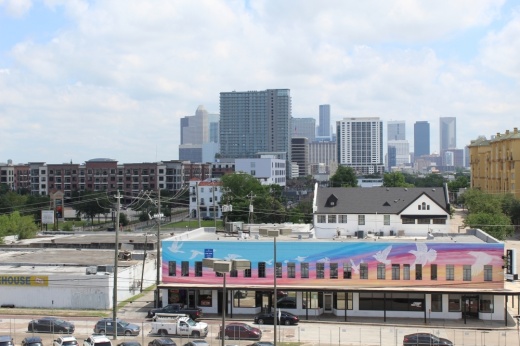The survey, released the Kinder Institute for Urban Research, is administered each year to the Greater Houston Community Panel, a set of 3,200 Harris County residents who were selected to mirror the county's demographics and whose responses are followed over time.
The Houston economy has added nearly 600,000 jobs over the past three years, said Ruth López Turley, director of the Kinder Institute and keynote speaker at a May 15 event to release the results.
"However, economic fluctuations, such as increases in inflation, are felt most by those struggling to make ends meet, and there are many in our community," Hurley said at the May 15 event, noting that 40% of respondents said they could not come up with $400 in case of an emergency.
Meanwhile, Hurley noted 72% of respondents said they wanted the government to do more to close income gaps. The 2023 survey was the first time a majority of each race and ethnic group supported more government action to close income gaps, she said.
Just over 25% of all survey respondents listed the economy as the biggest problem facing the area, up slightly from the previous year. Another 20% gave the top spot to the cost of housing, a jump from 2022, when housing costs were named the top problem by 7% of respondents.
"Crime and safety" was cited as the top problem by a plurality of respondents at just under 30%.
The results come after a spike in the rate of inflation, defined as how much the price of things changes over time. The rate of inflation hit 10.2% in June before falling to 5.3% in December, according to an analysis of Bureau of Labor Statistics data by the Kinder Institute. Prior to a jump in the rate of inflationin early 2021, it had largely stayed below 4% dating back to 2009.
Citing data from the Texas Real Estate Center at Texas A&M University and from the Annual Community Survey, Kinder researchers noted another noteworthy change over the past decade. Historically, the median home price has sat around three times the median per capita income in Houston, including as recently as 2010, when the median income was $46,000 and the median home price was $150,000.
However, by 2021, the median home price jumped to $300,000, more than four times the median per capita income that year of $65,000.
Other survey results of note included:
- Half of survey respondents said they felt their personal financial situation was going to improve over the next three years, the fourth consecutive year that number has fallen. Sixty percent of Black residents and 56% of Hispanic residents said they felt their financial situation would get better in the next three years, compared to 44% of Asian respondents and 40% of white respondents.
- The share of Houstonians who agree that immigrants "contribute more" to the economy than they take from it has increased from 42% in 1994 to 71% in 2023, though changes in the sentiment have been relatively flat since 2018. Roughly 82% of respondents in the 18-29 age bracket in 2023 said they felt immigrants strengthen American culture rather than threaten it.
- Nearly 60% of respondents agreed they would rather see tax dollars go toward "improving rail and buses" rather than "expanding existing highways," with 70% of younger Houstonians agreeing.
- Although respondents have been historically split on the preferences for either mixed development or single-family development, the 2023 results showed mixed development breaking away, with 60% of respondents showing a preference toward it.





